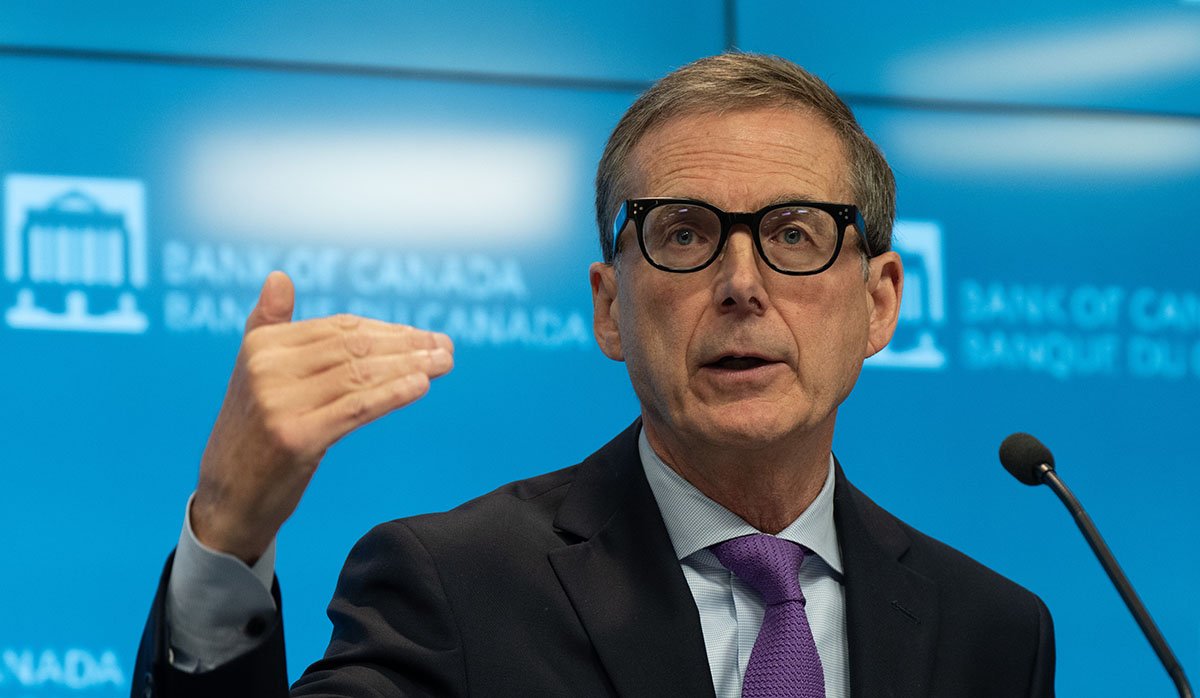How inflation rates and political noise might drive bank rate
THE CANADIAN PRESS/Adrian Wyld
Bank of Canada Governor Tiff Macklem is set to make a policy announcement on June 5.
Just over two years since the start of the most aggressive campaign of interest rate hikes in decades, the Bank of Canada is about to loosen its choke hold on the nation’s indebted households.
As early as June 5, at the Bank of Canada’s next policy decision, and no later than in July, the central bank is expected to begin an extended cycle of rate cuts. Economists are predicting the main policy rate will be cut by three quarters of a percentage point this year, and another three quarters of a point or more by the end of 2025.
Inflation numbers out this week – showing continued easing of price pressures into April – have only cemented those expectations.
The policy shift will be one of the biggest economic (and political) news stories in coming months, helping to create even more distance from the traumatic post-pandemic inflationary episode that Canadians have been suffering through.
The cuts will come as a huge relief to indebted Canadians, should they materialize. Prime lending rates offered by Canadian commercial banks will drop to below six per cent over the next 18 months, from about 7.2 per cent now. These prime rates are used to set borrowing costs on variable rate loans.
For governments – both federal and provincial – the friendlier macro environment will lighten the mood around the cabinet table.
But the big challenge will be to keep expectations in check. Lower rates won’t be a panacea and fix the deep issues facing an economy structurally stuck in a slow growth rut. The policy landscape, meanwhile, remains tricky and scope for policy error remains large.
Here are four observations and thoughts on the coming policy pivot:
1. One easy prediction – things won’t play out as predicted. Economists have a poor track record of projecting dramatic turning points like recessions (or the post-pandemic inflation surge). We live in a world of heightened volatility, low certainty and diminished confidence in our ability to predict the future beyond the next six months. The range of plausible outcomes is wide, from scenarios where there are few rate cuts because inflation reignites, to much more aggressive cuts because the economy suffers a serious setback.
It's important to note that policy makers are doing something that has rarely been done: produce a relatively large downward recalibration of rates outside of a major crisis.
2. The Bank of Canada will err on the side of caution. Because of all this uncertainty, humility will be the order of the day on policy. Technically, that means the Bank of Canada will be more data dependent than it otherwise would be, and slower to respond. In other words, they’ll attach more value on actual inflation data and less on models predicting where inflation will be.
Another hurdle to rate cuts may be the lack of loosening in the U.S. Canada’s central bank will struggle to diverge too much from the U.S. Federal Reserve, where there’s still talk of interest rates even rising further.
There’s a real risk markets and economists are being too hopeful about cuts.
3. Government should temper expectations on how beneficial the rate cuts will actually feel to the average household.
According to a risk assessment report released this week by the country’s banking regulator, three quarters of outstanding mortgages will be up for renewal by the end of 2026. Anyone who has taken out a loan in 2019, 2020 or 2021 will face a potential payment shock even with the rate cuts which will only act as a buffer
The current era of relatively high interest rates in Canada, the main source of financial angst for indebted households and young families across the country, is not going to quickly come to an end.
4. Politicians need to give the Bank of Canada more space. This needs to include a withdrawal by Conservative Party Leader Pierre Poilievre of his threat to fire Governor Tiff Macklem, should he take power. Macklem is a long-time public servant who’s pretty good at brushing off political criticism, but the more political noise there is, the more likely it will lead to unnecessary hesitation. And no one wants rates to remain higher than they need to.




